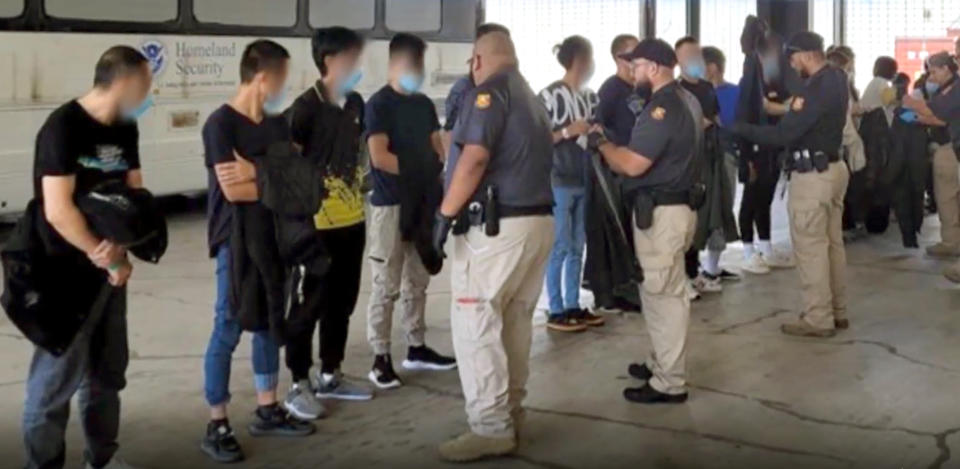Chinese migrants make dangerous journey to U.S. following instructions from social media
A growing number of Chinese immigrants are crossing into the U.S. without papers, often taking harrowing journeys through several countries and modes of transport and using social media as their guide.
“I think what we’re seeing now are people who are more middle class who just feel that the opportunities are diminishing and that the political situation has just become a lot riskier,” said Ian Johnson, a senior fellow with the Council on Foreign Relations. “And so they are finding any method by hook or by crook to get out of China.”
The U.S. Customs and Border Protection reported that, in the past five months, at least 4,300 Chinese undocumented migrants have been apprehended crossing the southern border, which amounts to more than double the number for all of the previous year.
One immigrant spoke anonymously to MSNBC about his experience, saying he feared staying in China after speaking out against government corruption. Fearing further retribution after being jailed twice, he fled, following instructions left by those before him on Chinese social networking apps. Detailed guides, videos and maps helped him make the journey largely on his own.
“There’s a lot of information, trust me,” he said. “Step by step.”

His journey took weeks, he said, and he traversed thousands of miles on planes, buses, boats, motorcycles and on foot. Some social media posts even advise migrants to cross in California rather than in the South, as stricter immigration policies could mean worse treatment on arrival.
Another man, who left his family behind to make the initial journey, said he has heard of others having to pay people for access to crucial information like where to stay along the way and where is best to cross. The price of that information can range from a few thousand to tens of thousands of dollars, he said.
“The new phenomenon is people are trying to make money,” he said in a translated interview. “So they’re giving little bits of information out at a time, and if you want more information about a particular route, they’re gonna demand more and more money.”
This article was originally published on NBCNews.com

